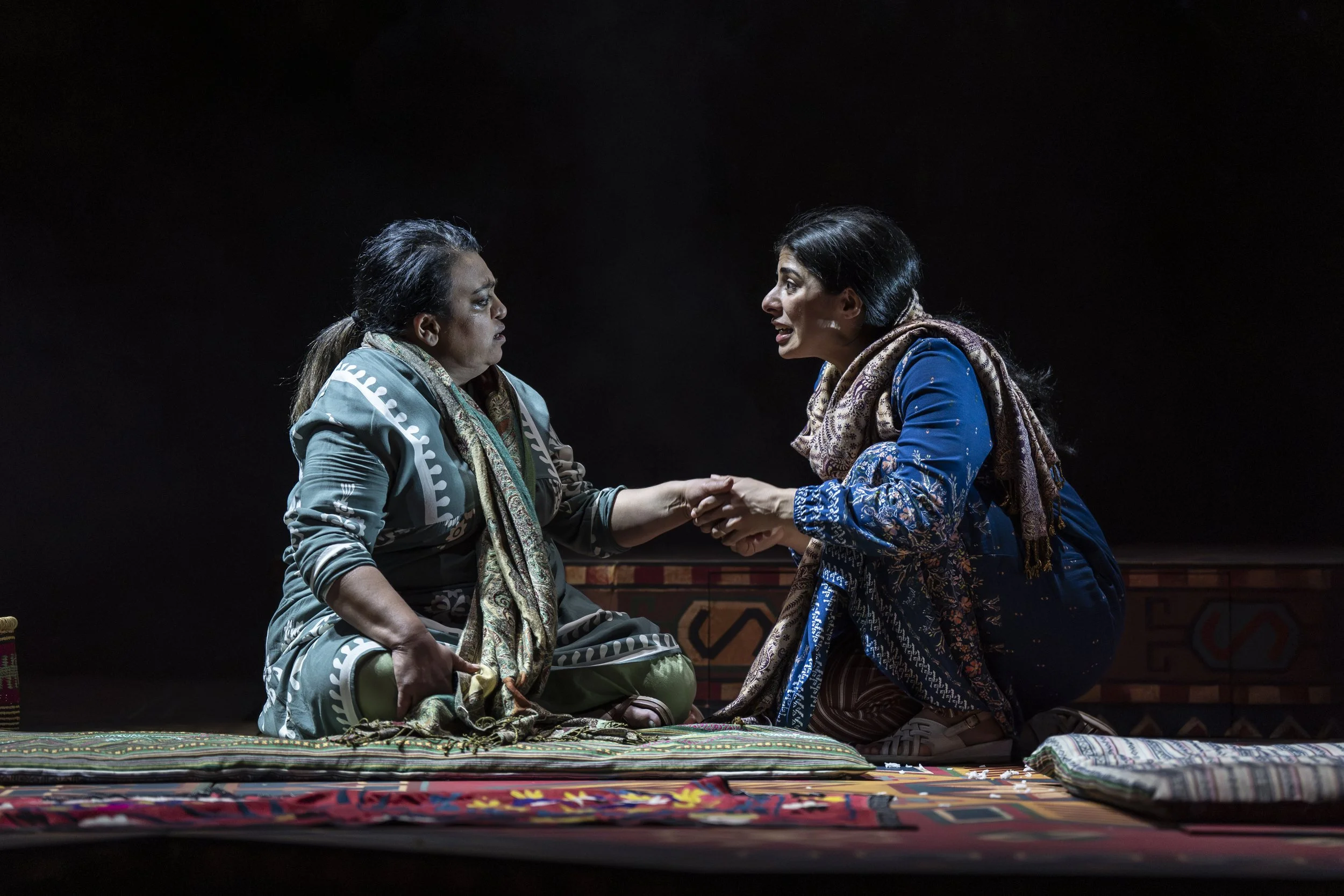A Thousand Splendid Suns adapted by Ursula Rani Sarma. Birmingham Repertory Theatre, 6 Centenary Square, B1 2EP, 3☆☆☆. Review: Joanna Jarvis.
Photo: Ellie Kurttz
A Thousand Splendid Suns adapted by Ursula Rani Sarma
Birmingham Repertory Theatre, 6 Centenary Square, B1 2EP,
3☆☆☆. Review: Joanna Jarvis
‘A heartbreaking tale of women, family and love.’
This a tale of women, family and love, in a country that has never really known peace, ruled by a patriarchy.
Laila, a young Afghan teenager from a privileged and educated family, is about to flee Kabul when a bomb kills her parents. She wakes up alone, having been recused from the rubble by a neighbour, Rasheed. Rasheed’s wife, a countrywoman spurned by her family, resents Laila’s presence. She senses that her husband will take her as a second wife. For Laila there seems no alternative to accepting Rasheed’s proposal and they marry. Laila’s relationship with the older woman gradually softens as they stand together against their husband’s cruelty and violence. The women are shut in at home, both by a society that denigrates women and a husband schooled to ‘protect’ his women through control. The co-wives become like mother and daughter, their situation a metaphor for what is happening in Afghanistan.
The narrative spans nearly thirty years ending in 2001, covering the waves of different forces that held sway over that period. Unfortunately such a span of time means that some nuances are lost in the need to tell the story. The women battle to survive the oppression that deprives them of freedom, identity, and the ability to care properly for their children.
The cast, Kerena Jagpal as Laila, Rina Fatania as Mariam and Jonas Khan as Rasheed bring a passion and understanding to their characters, trapped by society and their upbringings.
Simon Kenny’s setting evokes the warmth of a home enveloped in rich carpets, treasured possessions in an Afghan house. Matt Haskins lighting dulls this richness as their surroundings are devastated by bombing. A scene in the railway station, the first venture outside the home for the women, has an icy chill.
Women’s voices are silenced in Afghan society and Roxana Silbert’s production reminds us that although this story ends in 2001, the return of the Taliban means that little has changed. We need to ensure that these voices are heard.
Cast
Babi/Mullah Faizullah/Zaman/Militiaman – David Ahmad
Mariam – Rina Fatania
Laila – Kerena Jagpal
Rasheed – Jonas Khan
Tariq/Wakil/Driver – Jonny Khan
Zalmai/Wakil’s Wife – Noah Manzoor
Nana/Fariba/Doctor – Peyvand Sadeghian
Jalil/Abdul Sharif/Interrogator/ Militiaman – Tahir Shah
Young Mariam/Aziza/Nurse – Humera Syed
Creatives
Writer – Ursula Rani Sarma
Based on the Book by – Khaled Hosseini
Director – Roxana Silbert
Set & Costume Designer – Simon Kenny
Lighting Designer – Matt Haskine
Sound Designer – Clive Meldrum
Composer – Elaha Soroor
Movement Director – Kuldip Singh-Barmi
Fight Directors – Rachid Sabitri & Jessica Hrabowsky for True Edge Ltd.
Casting director – Helena Palmer CDG
Assisstant Director – Massi Safa
Production manager – Ian Taylor for eStage
